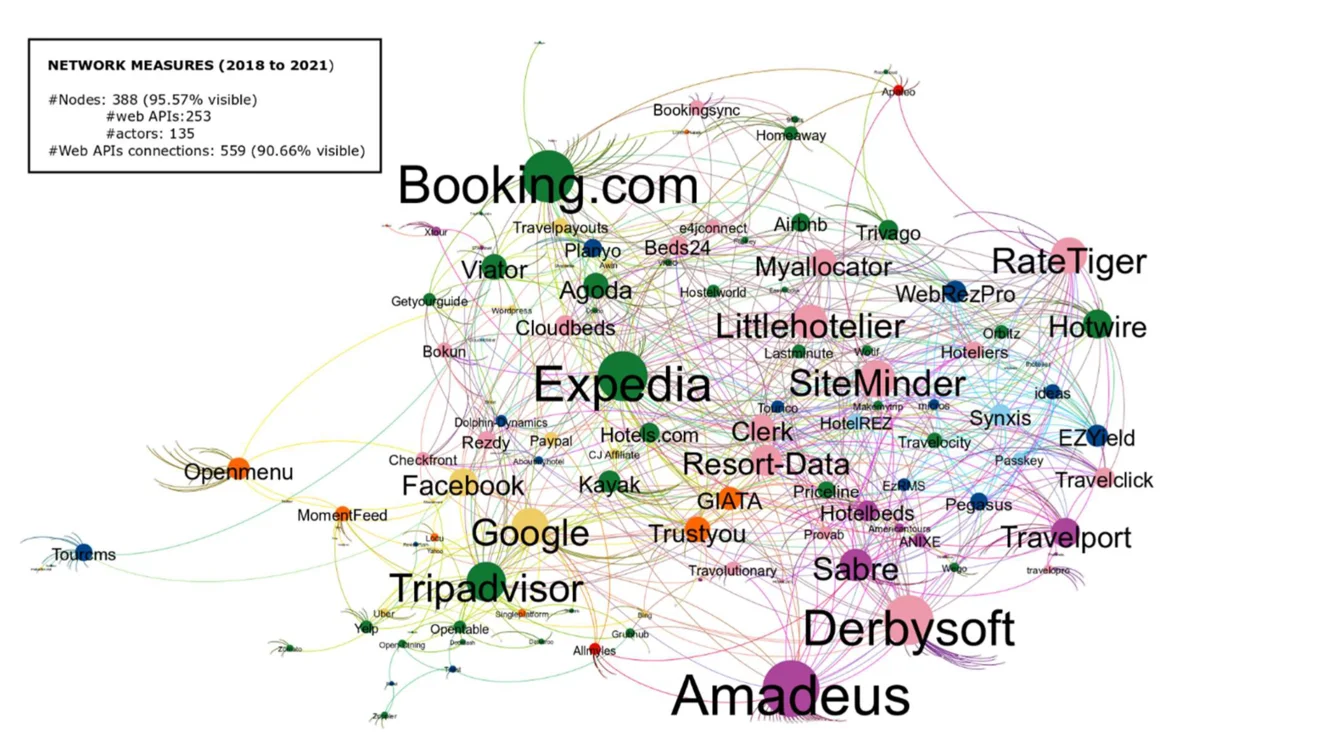The complicated digital world of online travel booking

Contents
Whether it’s suggesting a faster GPS route, correcting our grammar or automatically transcribing an online meeting, AI is increasingly aiding us in our daily lives, perhaps even becoming an expected offering from the services we use. But as these models become embedded in our digital ecosystems, will we maintain the ability to "see" what tools we are using? And with limited regulation of the opaque world of the digital, what might happen should this visibility disappear?
"You could argue that this is already happening," warns Dr Will Venters, Associate Professor of Information Systems in the Department of Management at LSE. "If you call a company today, for example, you may not be aware that their call centre may well be recording what you’re saying, feeding it through an AI-based transcription service and then through a Large Language Model to summarise the action points they have to take. Or when you start to type in your address online and it types the rest in for you – that it is a cloud-based service, which might be provided by a completely different organisation to the one you think you’re communicating with."
While this might sound harmless, it does call into question what happens to the information we're feeding into these systems, and who exactly is providing the information they are feeding back to us. A new paper by Roser Pujadas, University College London, and Erika Valderramaand Dr Venters, both based at LSE, focuses on online travel to explore the digital ecosystems involved.
Their study of the use of web APIs – application programming interfaces that allow different systems to communicate and interact with each other across the internet – finds that underneath the visible website users are interacting with lies a vast decentralised network of systems. These are all in play to provide us with the information we want – and many of these are now introducing AI into the mix. Focusing on online hotel booking sites, which have developed significantly since the first online travel agency launched 26 years ago, their paper set out the complexities that now underpin digital services such as sites like Booking.com or Expedia.
We might think we are interacting with one company, the reality is … that site is harnessing huge numbers of other companies
The digital ecosystem behind a hotel booking
When we visit a website like this, Dr Venters explains, what we are seeing is really just the shop window.
"There is so much complexity in this digital space that people are not aware of," explains Dr Venters. "Our paper reveals just how many services are involved in the simple booking of a hotel room. While we might think we are interacting with one company, the reality is that as we are giving one site the information about what we want, that site is harnessing huge numbers of other companies, who themselves may be using AI, in order to provide that information."
This may appear benign, but as Dr Venters explains, these systems are often calculating all manner of details in order to determine what price the site will offer to each specific user.
"The AI in these booking ecosystems is likely to be used in price optimisation, in understanding who you are, and in trying to work out what kind of purchasing behaviour you will have, how much you’ll spend."
In mapping these connections, Dr Venters and his colleagues reveal the decentralised nature of the processes around how these values are created and how this data gets shared within the ecosystem.
"Traditional literature has assumed that there’s a dominant player sitting in the middle – a Google or Facebook, for example, and that this powerful platform sets the rules. What our research demonstrates is that this is not necessarily the case."
As the below image shows, the reality is that websites can be serviced by a huge number of systems, processing the information provided before feeding back whatever part of the process they service.
We can only understand how AI is shaping society if we know where the AI is.

The AI frontier: a new Wild West?
The challenge for policymakers is that the complexity and opacity of these decentralised API services makes it hard to map where AI will shape society.
"We can only understand how AI is shaping society if we know where the AI is," says Dr Venters. "What we found is that we often don’t have this information, because it’s hidden and we may not know the legal jurisdictions involved. We don't know who's making the decisions to adopt AI. We won’t know where they're entwined within other services and other products, and so we have to trust websites and apps to manage the interfaces they use."
This makes it particularly hard to answer the kinds of issues that are vital to ensuring both a healthy company, and healthy society. "For example, how do these AI systems connect? What are they trying to do? Who are they working for? How are the ideas they work with being shaped over time? These are all important questions that are currently extremely hard to answer."
How do these AI systems connect? What are they trying to do? Who are they working for? ... These are all important questions that are currently extremely hard to answer.
With so much we don’t know, the risks of bias creeping in and becoming embedded, unseen and unchallenged are of particular concern, says Dr Venters. Giving the example of a traffic camera to illustrate: "If, say, a traffic camera is using 20 different API connected services, which all process the image data in different ways, and then issues penalties on the basis of them all – how can you easily challenge the validity of the final decisions?" Identifying and challenging bias here becomes far more difficult.
In addition, understanding the workings of these sites is particularly hard given the proprietary nature of corporate life. To sidestep this, the researchers focused on public data about API use, company websites and informal technical documentation that was available. "Accessing data on this subject is difficult," says Dr Venters. "This paper is based on Erika Valderrama doing a phenomenal job of going and studying the hundreds of APIs that were published in an online database. But this is hard to do – the complexity of these things makes it much harder for researchers to understand what is going on."
This network of decentralised systems also raises questions for the organisations which may not know exactly who is running the systems they have grown to rely on. Having identified how vast these digital networks can be, Dr Venters is now considering what this might mean for companies.
"Businesses really need to think strategically about these interconnections," he concludes. "I'm working to come up with a method by which they can map these dependencies better and start to really think about them strategically and what impact they have on their business."
Dr Will Venters was speaking to Jess Winterstein, Deputy Head of Media Relations at LSE.
AI, technology and society special edition
At LSE our researchers are using technology’s revolutionary power to understand our world better, looking at AI and technology’s potential to do good, and limiting its potential to do harm.
Browse upcoming events, short films, articles and blogs on AI, technology and society on our dedicated hub.
Join us on campus or online wherever you are in the world for LSE Festival: Visions of the Future, a week of special events 16-21 June 2025, free and open to all.
The London School of Economics and Political Science (LSE) is a world-leading university, specialising in social sciences and named University of the Year by the Good University Guide 2025. Based in the heart of London, we are a global community of people and ideas that transform the world.






